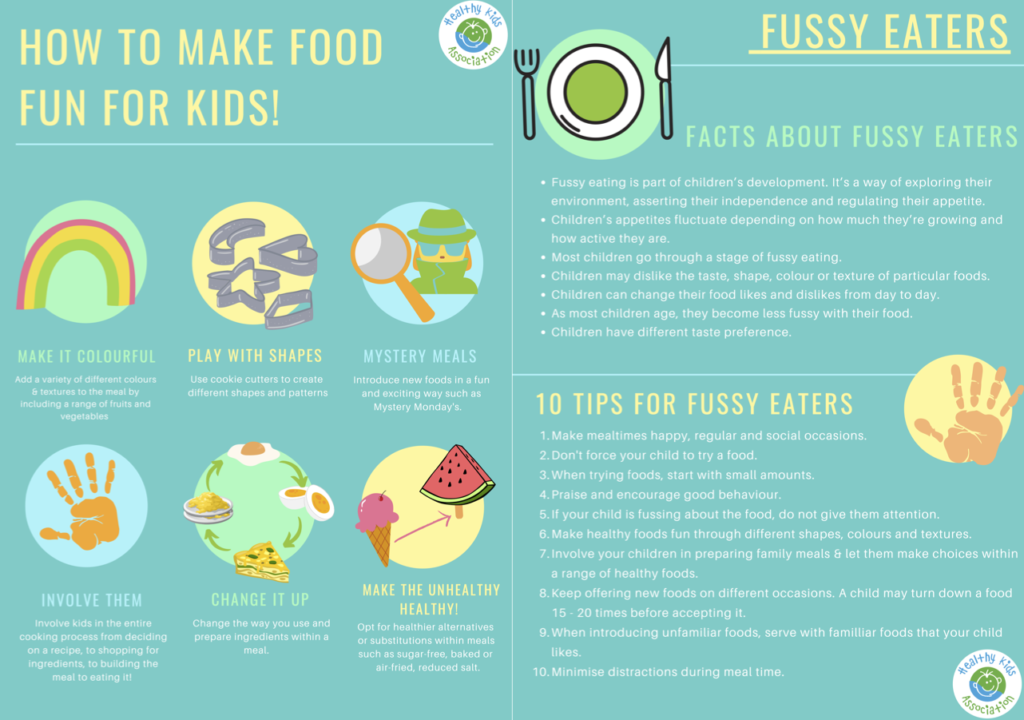Solutions for Fussy Eaters
8 out of 10 Australian parents are concerned about their child’s eating habits. It’s not unusual for a child to love a particular food one day and refuse it the next. Refusing new food tastes and textures is common in children and it’s often a behavioural issue, can be due to a genuine dislike of a certain food, or it may be because your child has ‘filled up’ outside of meal times. A child who refuses a food may be trying to assert their independence to see how you will react.
Top Tips: Coping with Fussy Eating Behaviours

- Ensure everyone who feeds your child agrees on how to deal with your child’s requests and refusals. E.g. you may decide to put a 20 minute time limit on mealtimes to prevent them dragging on, or you may decide that any requests for a different meal will be not be met. Everyone who helps your child at mealtimes needs to stick to the plan so it’s constantly reinforced.
- Stay calm when dealing with your child’s food fussiness. The more fuss that is made in return and the more emotional you get, the more charged meal time will become and your child will realise their behaviour is getting the attention they desire. By remaining calm, you will help to diffuse the situation and your child will realise their behaviour isn’t getting them any extra attention.
- As soon as your child is old enough, serve them the same meal as the rest of the family. It’s best to avoid getting stuck in the habit of taking special requests!
- Sometimes life for children is too exciting to spend time eating. Therefore it is important to make meal times a happy time for the family. If it becomes stressful, the child won’t enjoy it and neither will you!
- Don’t give up and keep trying, a child may need to be exposed to a new food up to 10 times before they will eat it.
- Introduce new foods when you know your child will be hungry, as there is more chance they will try something new when they are hungry.
- Do not offer a replacement food if what you offer is rejected. Unless a child is unwell they will never voluntarily starve themselves. The more fuss that is made, the more likely that this behaviour will become entrenched.
- If your child flat-out refuses to eat the meal you have prepared and then claims to be hungry before bed, what should you do? It’s really up to the parent and their individual preferences to decide. Some parents will present the same meal later if the child is hungry and see if they eat it then, while others will choose to offer a replacement snack such as a banana and a cup of milk. Whatever you decide, if you are offering another food, make sure it’s healthy and nutritious.
Fussy Eating Fact Sheet
Download our Fussy Eating Factsheet which outlines how to make food fun for kids, facts about fussy eaters and our top tips for fussy eaters.

If you have tried and tested advice on dealing with fussy eaters, why not share your tips with the Healthy Kids Facebook community.






